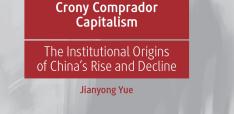All the World’s a Stage: the political performance of summitry

International Media Centre – G20 Buenos Aires Summit. As world leaders in well-cut suits exit planes wide-angle cameras focus their gaze. The stage is set, the script rehearsed, the world watches.
Much of the bargaining takes place on the sidelines of international summits, thus there is inevitably a degree of theatricality to them. However, this seems an understatement as the drama unfolded in Argentina like a G20 special of a telenovela. Increasingly, this international summitry can be understood as a society of the spectacle, where ex-reality TV stars are presidents and Twitter is the political mouthpiece.
Following the Khashoggi murder and war in Yemen, Saudi Prince Mohammad Bin Salman is softly ostracised but finds a friend in Putin complete with super villain ‘bro-shake’ as Trump looks on like a crossed ex-lover. Macron later exchanges hushed words with the Prince “you never listen to me” he murmurs, not quite far enough off-set.
The President of the United States produces a Twitter monologue about his ‘very legal & very cool’ dealings with Russia. Bilateral meetings turn into a will-they-won't-they. Trump develops some sort of natural babelfish that works better than his earpiece. After the photos are staged, he exits stage-left abandoning Macri to a one man show.
Whether you regard it a tragedy or a comedy, it is hard not to see this summit as a piece of political theatre.
As triviality rules we take a step back and ask ourselves whether world meetings like the G20 have been reduced to a political farce. They are consumed as easily digestible memes and clickbait in the age of the internet. Some look on with despair as international consensus is negated for personality politics. Substantial and serious policy engagement becomes eclipsed. Even protests can seem a spectacle as the gloriously orange baby Trump blimp flies overhead in a new city. We have to ask whether they too have been reduced to virtue signalling where objectives shifts from influencing political action towards a feeling of moral superiority above deplorable politicians.
However, we must not underestimate the politics of performance. It is through spectacle, representation and symbolism that global politics is constituted. The system is produced though its own performance. Theories of performativity tell us that there is no ‘real politics’ separate from the one behind the velvet curtain, they are one and the same.
If we accept this, we understand that theatricalities must be taken seriously. Power is exercised through both speeches and smiles. They create narratives about the norms and limits of our international political, economic and legal systems. Soft power is power nonetheless and all the better if it is cloaked in bit of humour. A viral video often has more reach than a diplomatically worded communiqué. The seemingly amusing interactions of our national figureheads can have significant consequences beyond their consumption in the media. These things depoliticise and normalise the (not so) subtle workings of power in global governance.
Inevitably then, we too must turn back to the giant infantile Trump bopping overhead. As high-level international politics takes on a performative character protests can counter this with their own politics of performance. Humour is a powerful tool for subverting the exertion of power through images. Creative forms of protests can share the stage of international diplomacy and contest the narratives that are produced. They reflect back to the G20 its seriousness in a technicolour of satirical farce. Across the city protesters put on their own shows – ‘zombies’ walk the streets of Buenos Aires representing themselves as the victims of globalisation. Just because politics is a performance does not mean we cannot change the actors and alter the script.
G20 Team: Martina Alvarez, Sol de Bernado, Matthew Bishop, Holly Barden, Holly Clarke, Hugo Dobson, Camila Dolabjian, Jamie Firby, Martina Gallego, Eleanor Harris, Daniela Ibañez, Eitan Kiperman, Victoria Lapadula, Marianne Quinn, Alex Kirby-Reynolds, Sofía Sant, Vipran Srivastava, Hayley Stevenson and Tom Wymer.
Image credit: Alan Cleaver via Flickr


